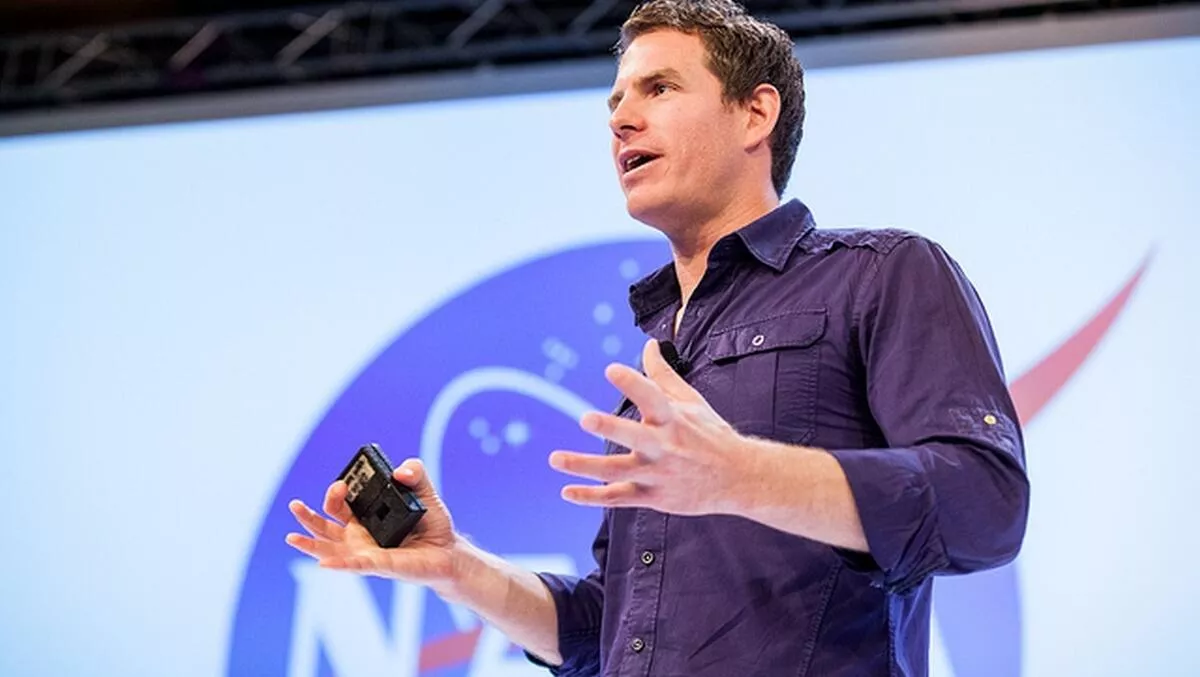
NZ TechEd LIVE: Are Kiwis blind to Big Data privacy risks?
"Would you write down your details and leave them in a coffee shop in Queen Street?"
That's the question Sean Gourley asked Kiwis this morning, the New Zealand who founded data analysis firm Quid.
Speaking at Microsoft's TechEd New Zealand 2013 event in Sky City, Gourley challenged the public to think deeper when it comes to big data, and the privacy risks that follow.
Having previously acting as a political advisor to the Iraqi government, the UN and the Pentagon, Gourley is well-versed in the art of analysing complex data, yet understands such knowledge isn't applicable to the wider masses.
"For those of us in the industry when PRISM came out it was just, doesn't everybody know this" says Gourley, who launched Quid in 2010.
Revealed by whistleblower Edward Snowden in July, a host of American tech companies have been accused of helping the US government collect private customer data from as far back as 2007.
Labelled PRISM, the electronic surveillance program is used to monitor foreign intelligence collected from the intent and other electronic providers – classified as top secret by the US government.
"I think there's a belief that the internet works much like your laptop, in the old model of computing," Gourley says.
"We type stuff that is ours but the new model is that we type stuff and it's someone else's, and once we've typed it, we have no control over what is done with it. And I think it is a pretty steep learning curve for people.
"The key question is whether the public knows what happens when they key data into the internet.
"While many think that is their data and private, essentially the information goes to a third party as well."
Yet for the average Kiwi in the street, or the world for that matter, Gourley acknowledges that such information isn't as widespread.
With the GCSB law change currently under the spotlight in New Zealand, generating scores of public opinion in the process, Gourley questions whether enough information is available on a public level.
"There is certainly a lack of understanding out there regarding the power of data and the potential privacy concerns this brings," says Gourley, who counts himself as a two-time New Zealand track and field champion.
"It's pretty hidden for most people. I don't think they could even tell you how the News Feed alogarhytm works on Facebook.
"We're at the same stage of online data collection and content manipulation as we were with cigarettes when they first came out.
"People don't know what it is, but it's addictive and they like it. Yet they don't really know what it's doing to them."
So, how can the gap be bridged?
"It's a thankless task but you have to tell these stories," Gourley says. "It doesn't mean you have to say right or wrong either side but it's important to help people understand.
"I think the first thing is people should treatment the information is that it's being written and left in a public space where anyone can come and pick it up.
"Would you leave it down the lobby in Sky City and anyone can look at it. Would you still write it?
"Rather than it's in my laptop and in my diary and I wrote it and left it on a set of paper. And a lot of stuff we'd still write, but there is a lot where maybe we would think twice. So it's a process of changing our paradigm of what it actually means.
Training as a physicist, Gourley has turned his scientific mind to analysing data about a messier topic: modern war and conflict.
Focusing on complex adaptive systems and collective intelligence to understand what makes us go to war, when, and why. As Gourley puts it, "This research has taken me all over the world from the Pentagon, to the House of Lords, the United Nations and most recently to Iraq."
Holding three passions in life, TED fellow Gourley lists physics, politics and technology as key drivers in his work - drivers which helped launch Quid three years ago.
Essentially a big data company that builds software to augment human intelligence, Gourley has raised $17m in financing and counts some of the biggest companies and governments in the world as customers, who use Quid to understand everything from political protests to high frequency trading.
Operating out of Silicon Valley, Gourley offers an on-the-ground insight into how New Zealand is perceived in San Francisco.
"To be honest, until a few years ago, New Zealand wasn't perceived in the Valley, it didn't exist," he says.
"A few things have helped, such as Peter Thiel becoming a citizen in the country. It's funny that one person, who holds such an influence in the Valley, can have such an impact on the profile and awareness of a country but it's true.
"Obviously the surge of Xero has helped further increase the interest levels. They were perceived as some crazy company that went public who are now showing up and doing well in the US, which is the next element of New Zealand increasing it's presence over there.
"Of course we are loosely associated with not just racing yachts, but being responsible for the technology behind it. Throw in the global admiration for Peter Jackson, who has produced the most genius level of animation bar none, and that's probably where New Zealand stands in the Valley at present."
"The more Kiwis than can become exposed to the Valley, the big the benefits for New Zealand," concludes Gourley, who admits a New Zealand office is on the radar.

